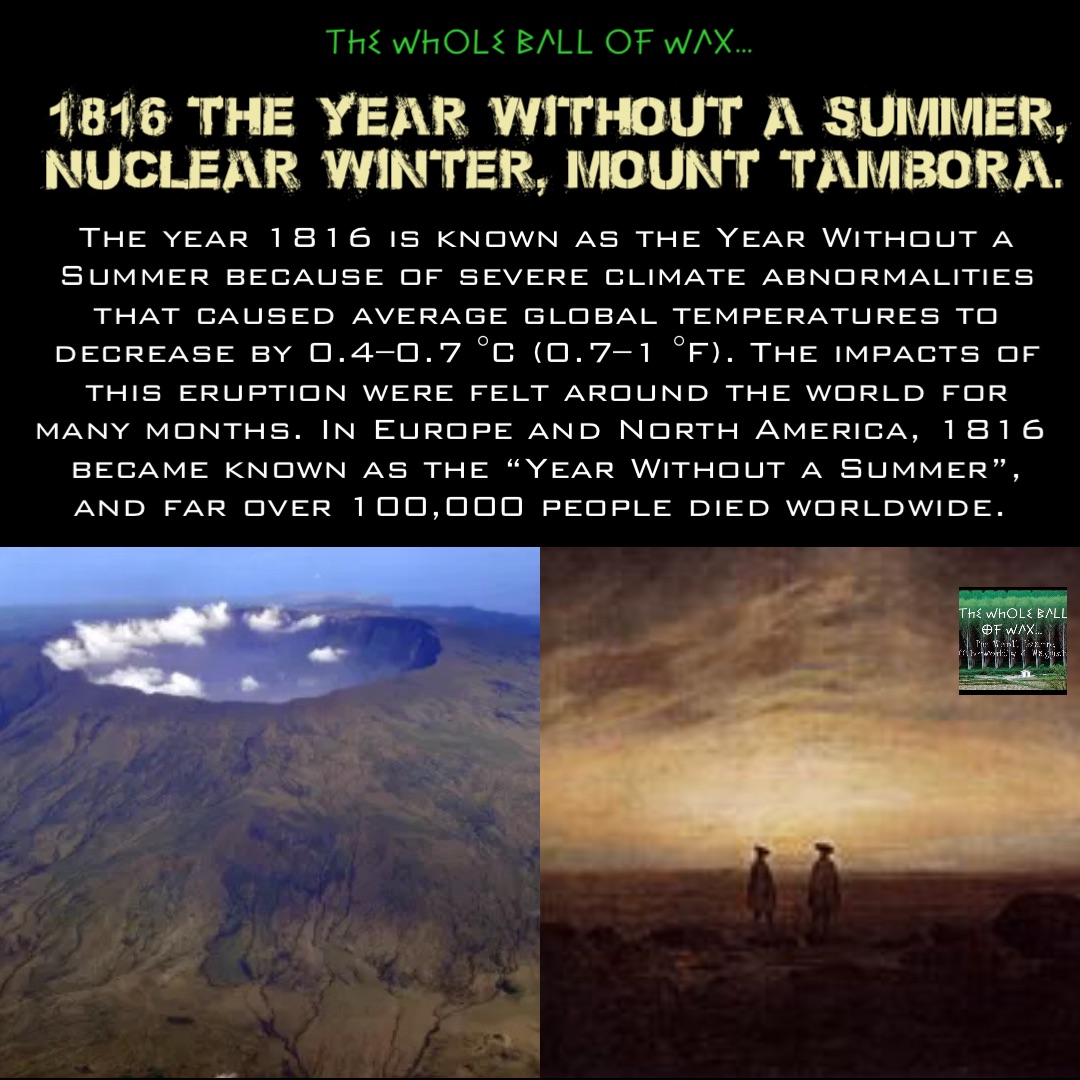
Double tap to edit Double tap to edit The year 1816 is known as the Year Without a Summer because of severe climate abnormalities that caused average global temperatures to decrease by 0.4–0.7 °C (0.7–1 °F). The impacts of this eruption were felt around the world for many months. In Europe and North America, 1816 became known as the “Year Without a Summer”, and far over 100,000 people died worldwide. 1816 The Year Without A Summer, Nuclear Winter, Mount Tambora.











